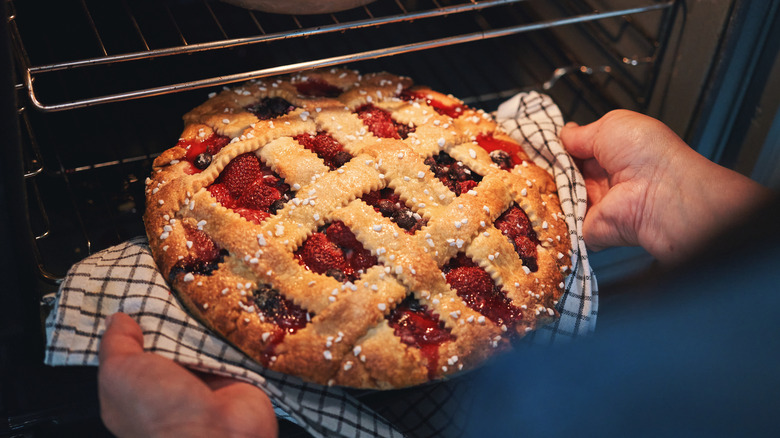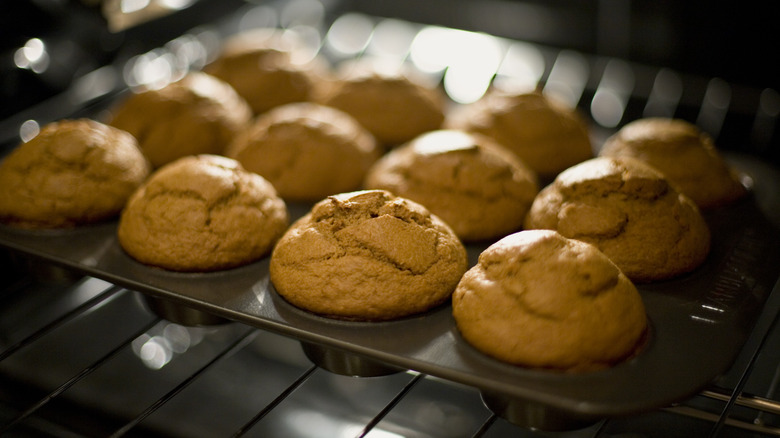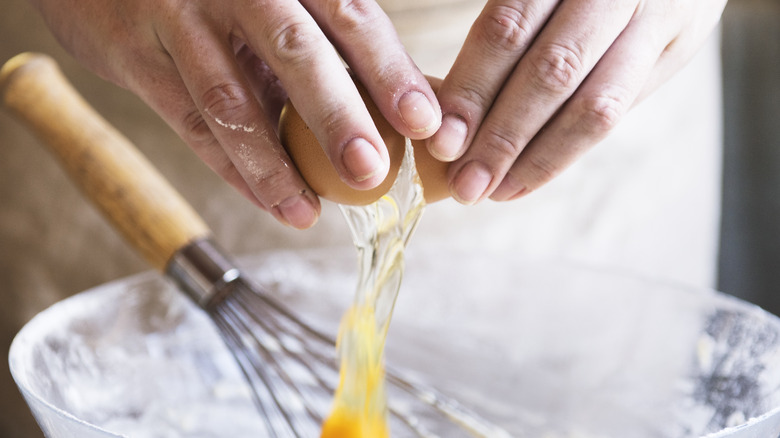High Altitudes May Be The Reason For Your Baking Blunders
If you live on land that's high above sea level, you might find that your creations in the kitchen can come out a little bit differently than you're expecting. Once you hit 4,000 feet elevation above sea level, some alterations may need to be made in order to ensure the most consistent, delicious treats.
A few different problems can arise when baking the higher up you go. Rising, specifically, will be expedited, so if you're baking up a loaf of bread, you'll want to keep a close eye on your dough. Your cakes and cookies can also expand a little extra, so be sure to give them some additional room to avoid any oven messes.
Water content is affected by higher altitudes, too. The liquids in your recipes may evaporate faster than they would at sea level, which can lead to dried-out desserts. Even dry ingredients, like flour and sugar, will be less moist at the heightened elevation.
Your bakes might need some extra heat
Fortunately, there are a few easy modifications you can make to prevent any kitchen mishaps, even at an elevated height. To prevent your bakes from expanding too quickly, you can omit a little bit of the leavening agents. Cutting out a little bit of the yeast or baking powder can help things slow down a little so your treats don't rise too quickly. You can also allow your bread to rise for a little less time than the recipe recommends, so it doesn't become over-proofed.
To combat the quickened evaporation and prevent your bakes from drying out, increase your oven's temperature a little extra. The higher heat will allow the treats to bake up more quickly before the liquid ingredients have a chance to fully evaporate. Because of this increase, you will want to make sure to take your bakes out of the oven before the recipe originally recommends. Keeping them in the oven at a higher temperature for the standard amount of time could lead to overdone or burnt food.
Add in a little extra moisture
If you want to prevent your cakes from crumbling, you'll want to add some extra liquid into the mix to keep things moist too. A few extra tablespoons of water or milk, or even an extra egg, can go a long way in preventing your sweets from drying out. While the batter might initially look like it has too much liquid, it may be just what you need for the most delicious desserts.
At 3,000 feet above sea level, add in an extra one or two tablespoons of liquid. At 4,000 feet, toss in another teaspoon and a half, and continue adding this increment for every thousand feet up you go. If you're baking up a cake, adding an additional egg — or even just some extra egg white — could help increase the moisture of the dessert as well.
While baking at higher altitudes can present some unique challenges, knowing how to combat them can ensure your baked goods come out delicious every time.


